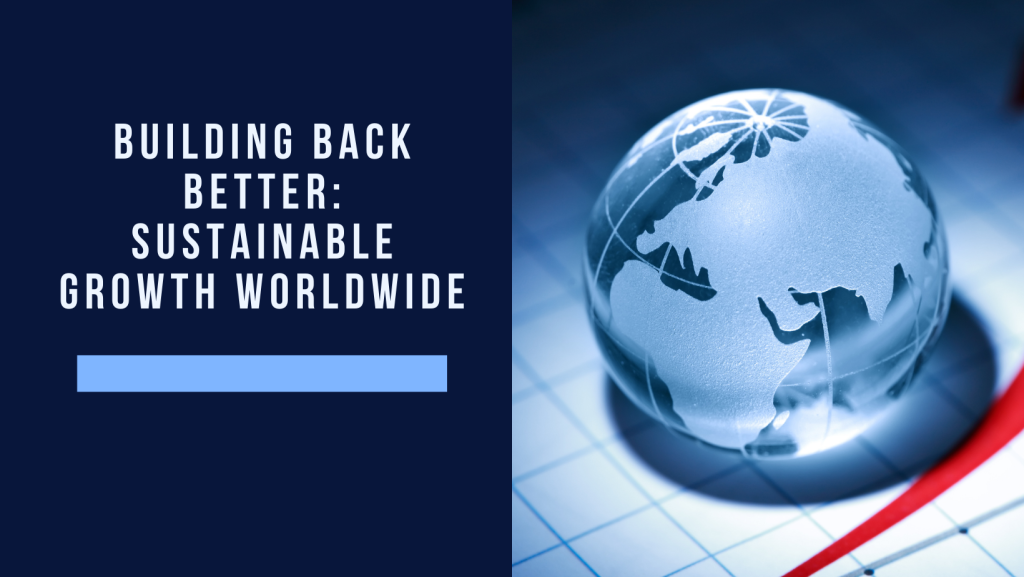As the world economy seeks to recover from the impacts of the COVID-19 pandemic and address longstanding challenges such as inequality, poverty, and climate change, there is growing recognition of the need to build back better and create a more sustainable and inclusive future for all. In 2024, policymakers, businesses, and civil society are increasingly focused on implementing strategies that promote economic growth while also advancing social and environmental objectives.
One of the key strategies for building back better is investing in green and sustainable technologies and infrastructure. From renewable energy to energy-efficient transportation to sustainable agriculture, there are numerous opportunities to promote economic growth while reducing carbon emissions and mitigating the impacts of climate change. By prioritizing investments in clean energy and sustainable infrastructure, countries can create new opportunities for job creation, innovation, and economic development, while also contributing to global efforts to address climate change.
Moreover, fostering inclusive and equitable growth is essential for reducing poverty, inequality, and social exclusion. This includes investing in education, healthcare, and social protection programs to ensure that all members of society have access to opportunities for economic advancement and social mobility. Additionally, promoting gender equality and empowerment, supporting marginalized communities, and addressing systemic barriers to inclusion are all critical components of building a more equitable and inclusive economy.
Furthermore, promoting innovation and entrepreneurship is key to driving productivity, competitiveness, and economic growth in the world economy. By fostering a culture of innovation, supporting research and development, and providing access to capital and support services for entrepreneurs, countries can unlock new opportunities for job creation, innovation, and economic diversification. Additionally, investing in digital infrastructure and promoting digital literacy can help bridge the digital divide and ensure that all members of society can participate in the digital economy.
Additionally, promoting international cooperation and multilateralism is essential for addressing global challenges and fostering sustainable and inclusive growth. By working together to tackle issues such as climate change, trade tensions, and global health crises, countries can unlock new opportunities for trade, investment, and innovation, while also mitigating risks and promoting stability in the global economy.
In conclusion, building back better in the world economy requires a holistic approach that prioritizes sustainability, inclusivity, and innovation. By investing in green and sustainable technologies, fostering inclusive and equitable growth, promoting innovation and entrepreneurship, and strengthening international cooperation and multilateralism, countries can create a more prosperous, equitable, and sustainable future for all.




